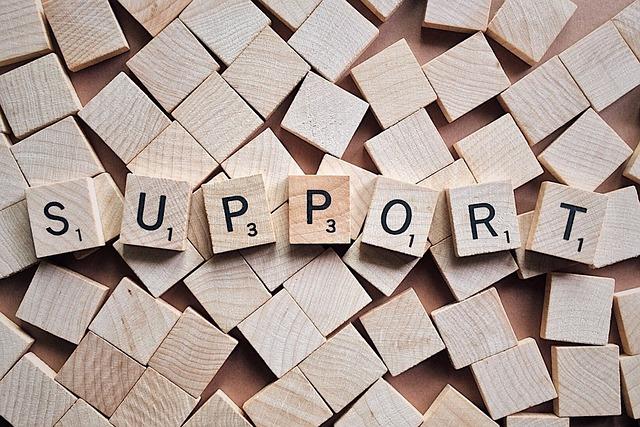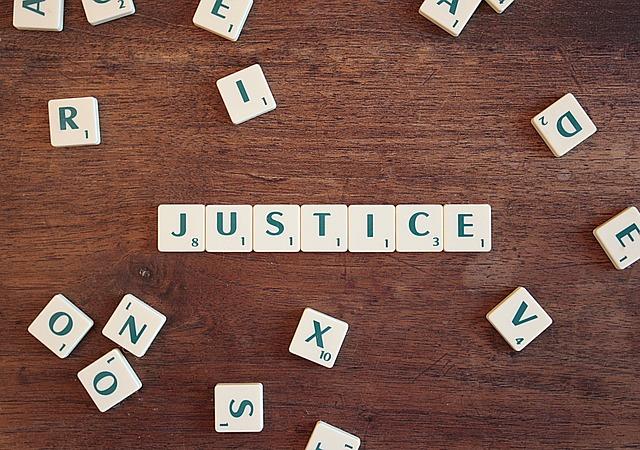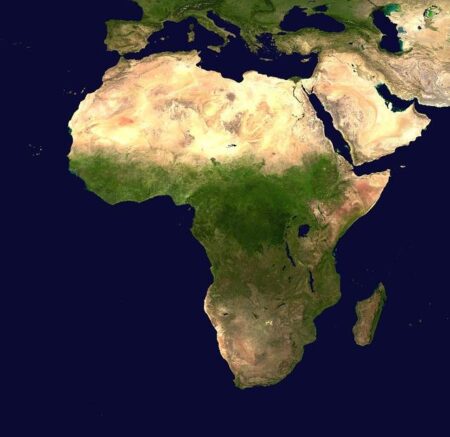In a landmark advancement for justice and accountability, the International Federation for Human Rights (FIDH) has commended the recent judicial rulings surrounding the tragic events of the 28 september 2009 massacre in Guinea. On that fateful day, a peaceful gathering in the capital, Conakry, was violently suppressed by government forces, resulting in the deaths of over 150 individuals and the assault of countless others. Over a decade later, the pursuit of justice for the victims and their families has culminated in significant legal advancements, signalling a hopeful resolution too an enduring chapter of impunity. This article delves into the findings of FIDH regarding the judicial verdicts that have emerged, the impact on the victims’ families, and the broader implications for human rights and governance in guinea. As the nation grapples with its tumultuous past, these developments shine a light on the critical need for truth and reconciliation in the pursuit of lasting peace.
verdict Announced: A Landmark Ruling for Victims of the 28 September Massacre
The long-awaited verdict has finally been announced, marking a significant milestone for the victims of the 28 September 2009 massacre in Guinea. this landmark ruling comes after years of persistent advocacy and relentless pursuit of justice by human rights organizations, including FIDH. The court’s decision to hold those responsible accountable carries profound implications for the rule of law in Guinea and sets a precedent for other countries grappling with similar acts of violence and impunity. With this ruling, the voices of the victims have been amplified, and their struggles recognized on a national and international scale.
This ruling not only represents a victory for the victims and their families but also underscores the importance of judicial independence and accountability in addressing past atrocities. Key elements of the verdict include:
- Accountability for Perpetrators: the court identified key figures responsible for orchestrating the massacre and addressed the systemic flaws that allowed such human rights violations to occur.
- recognition of Victims’ suffering: The ruling acknowledged the trauma faced by survivors and the enduring impact of the events on the community.
- International Attention: The verdict has attracted global scrutiny, pressuring authorities to prioritize transitional justice and human rights reforms.

Historical Context: Understanding the 2009 Tragedy and Its Aftermath
The 2009 massacre in Guinea, which occurred during a peaceful protest against the ruling military junta at Conakry’s stadium, remains a haunting chapter in the nation’s history. On that fateful day, September 28, security forces violently suppressed demonstrators, resulting in the death of over 150 individuals and the brutal assault of many others. The events showcased not only the extreme levels of state violence but also the systemic issues of impunity within the country’s political landscape. Witnesses and survivors have long demanded accountability, emphasizing the need for a transparent judicial process to bring the perpetrators to justice.
Following years of advocacy from human rights organizations, including the International Federation for Human Rights (FIDH), a historic trial began to take shape, shedding light on the resilience of the victims’ families.The verdict, which implicated key figures in the junta, was seen as a glimmer of hope amid a long history of government disregard for human rights. It serves not only as a reminder of the atrocities endured but also underscores crucial elements in the fight for justice and reconciliation, such as:
- Restorative justice as a pathway to healing
- The necessity for a culture of accountability
- The role of grassroots movements in sustaining pressure on authorities
This evolving narrative illustrates how the 2009 tragedy has become a focal point in guinea’s ongoing struggle for democracy and human rights, proving that the echoes of the past continue to inform the country’s path forward.

The Role of FIDH: Advocacy and Legal Support for Justice
The International Federation for Human Rights (FIDH) has been instrumental in the ongoing fight for justice following the tragic events of 28 September 2009, when a brutal massacre occurred in Guinea.with a steadfast commitment to advocating for victims’ rights, FIDH has worked tirelessly to raise awareness about the human rights violations that took place during that fateful day. Their efforts have included:
- Legal Assistance: Providing expertise and resources to ensure victims have access to justice.
- International Advocacy: Engaging with global institutions to highlight the need for accountability.
- Documentation: Collecting evidence and testimonies to support the victims’ cases.
Recent developments have marked a historic step forward, as the Guinean judiciary took significant actions in bringing perpetrators to justice.FIDH’s role in this process has been vital, not only in supporting legal proceedings but also in educating the public about the implications of these landmark rulings. The organization emphasizes that this verdict is not just a victory for the victims and their families, but also a crucial message to the international community regarding the unyielding demand for justice and the rule of law. The continued focus on the events of september 28 has inspired a broader discourse on human rights in Guinea, acknowledging the importance of clarity and accountability in governance.
Implications of the Verdict: A Step Towards Accountability in Guinea
The recent verdict concerning the 28 September 2009 massacre marks a pivotal moment for justice in Guinea, offering a glimmer of hope for accountability in a nation that has long grappled with impunity. By holding perpetrators responsible for their heinous acts, this ruling not only acknowledges the sufferings faced by the victims and their families but also sets a precedent for future legal actions. The decision is a reflection of collective resilience and determination from civil society organizations, including the FIDH, which have tirelessly campaigned for transparency and justice over the years.
this landmark decision has several implications that resonate beyond the courtroom:
- Strengthening rule of law: The verdict reinforces the idea that no one is above the law, serving as a potential deterrent against future human rights violations.
- Empowering victims: It helps validate the voices of those affected, encouraging more victims to come forward and seek justice.
- International attention: Increased global scrutiny could lead to more support for justice initiatives in Guinea, fostering an surroundings where accountability becomes the norm.
| Key Implications | Description |
|---|---|
| Justice for Victims | Acknowledgment of the trauma suffered and their right to seek justice. |
| Legal Precedent | Establishing a framework for prosecuting historical human rights violations. |
| National Reconciliation | Promoting healing and social cohesion through acknowledgment of past atrocities. |

Calls for International Support: Recommendations for Continued Victim Advocacy
as the pursuit of justice continues for the victims of the 28 September 2009 massacre in Guinea, it is imperative that the international community enhances its support for victim advocacy. Legal frameworks must be strengthened, ensuring that victims’ voices are integrated into ongoing judicial processes. To achieve this, the following measures are recommended:
- Amplify Legal Assistance: International organizations should provide technical support to local NGOs, helping them navigate complex legal terrains.
- Facilitate Access to Mental Health Services: Victims should be offered comprehensive mental health resources, addressing both trauma and emotional wellbeing.
- Strengthen Reporting Mechanisms: Establish secure and anonymous channels for victims and witnesses to report abuses without fear of retribution.
- Support Advocacy Training: Equip local advocates with skills necesary to raise awareness and mobilize public support at both national and international levels.
Furthermore,international partnerships must prioritize the establishment of a systematic approach to documenting abuses and ensuring accountability. Countries and organizations can work together in the following ways:
| Partnership Action | Outcome |
|---|---|
| Joint Investigations | Collectively gather evidence to support ongoing trials. |
| Funding Initiatives | Provide financial resources for victim support programs. |
| Training Collaborations | Share best practices in victim advocacy and legal processes. |

Looking Ahead: Ensuring Justice and Preventing Future Atrocities
As we reflect on the verdict that has finally emerged in the long-awaited case surrounding the horrific events of 28 september 2009, it is essential for the international community to remain vigilant. Justice must not be a fleeting achievement,but rather the groundwork for a future free from the cycles of violence and impunity. The ruling represents more than a judicial outcome; it sets a critical precedent aimed at:
- Empowering victims by recognizing their suffering and concerns.
- Encouraging accountability, prompting state actors and military personnel to reflect on their obligations to uphold human rights.
- Fostering a culture of transparency that prevents atrocities through robust civic engagement and governmental oversight.
The path forward involves not only the prosecution of those directly responsible for the massacre but also systemic changes to ensure that such violations are not repeated. It calls for a comprehensive reconciliation process that addresses the root causes of violence, discrimination, and societal division. Commitment from local and international bodies is vital in establishing mechanisms for:
- Education on human rights among law enforcement and military forces.
- Support services for victims, aiding in their healing and integration.
- community dialog initiatives to bridge divides and promote understanding.

To Wrap It Up
the verdict delivered regarding the brutal events of September 28, 2009, marks a significant milestone in the pursuit of justice for the victims of the massacre in Guinea.This long-awaited decision by the courts not only acknowledges the immense suffering endured by countless individuals but also reinforces the commitment of organizations like the International Federation for Human Rights (FIDH) to hold perpetrators accountable.As survivors and the families of victims seek closure, this ruling serves as a powerful reminder of the importance of judicial redress in the face of impunity. The journey toward healing may be long, but with this victory, there is hope that the memories of those lost will drive continued efforts for human rights and dignity in Guinea. The fight for justice continues, not just for the victims of this tragedy, but for all who suffer under the weight of oppression and violence worldwide.







